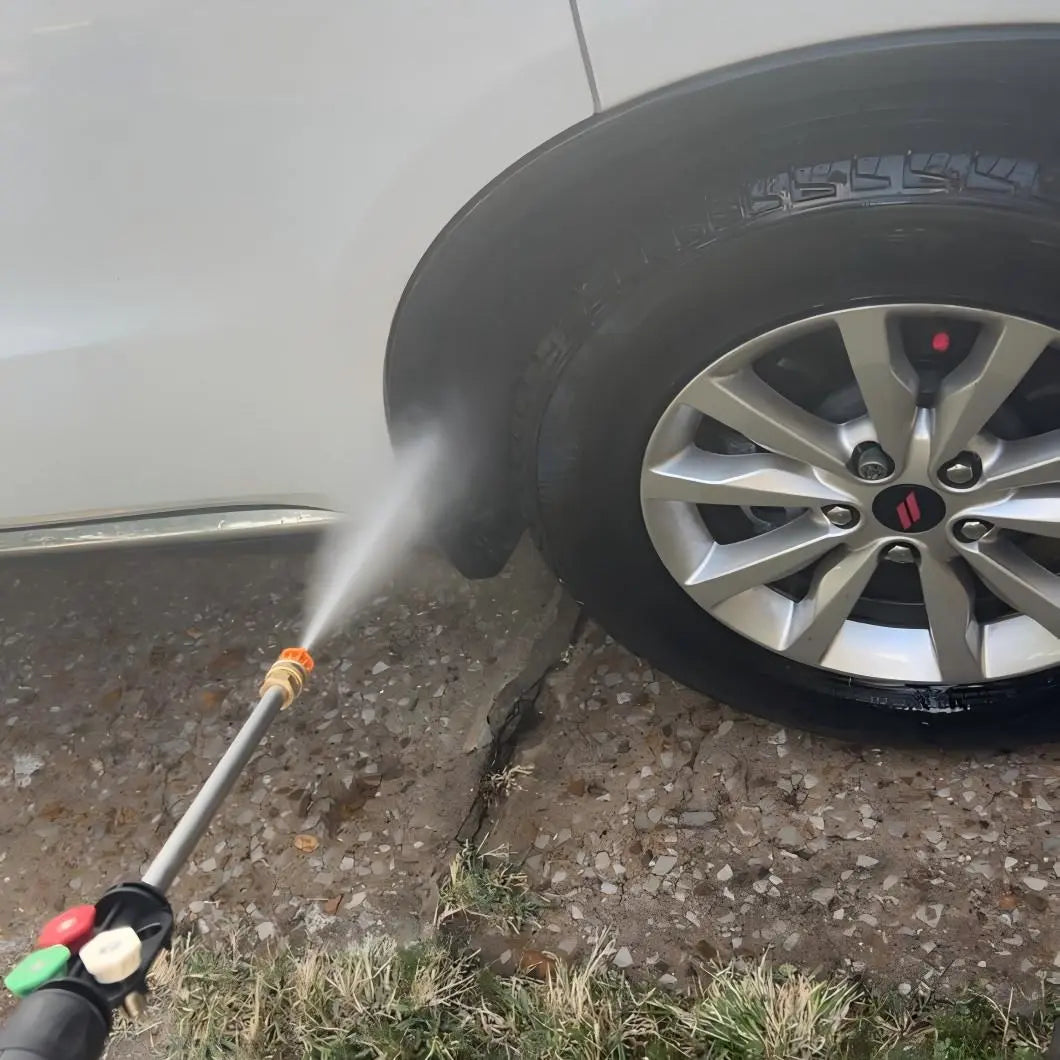What Is the Life Expectancy of an Electric Pressure Washer?
The lifespan of an electric pressure washer depends on usage, core parts, and maintenance. With proper care, home models last years and industrial units a decade or more. Learn key tips and why the Yeryork 5000PSI with a 1900W motor and 3-year warranty is built for lasting performance.

When investing in an electric pressure washer, one of the most common questions is: how long will it last? The life expectancy of an electric pressure washer depends on several factors, including usage time, the quality of its core components, and how well it is maintained. Understanding these elements can help you maximize the longevity of your device.
Usage Time and Device Level
Electric pressure washers are designed differently depending on their intended use. Industrial-grade units often last 5 to 10 years or more, offering 5,000–8,000 hours of operation thanks to heavy-duty motors, metal pump heads, and advanced safety systems. Commercial-grade machines typically provide 2,000–4,000 hours of use, translating to roughly 3–7 years. They are suitable for daily work but are not built for extreme continuous operation. Entry-level or home-use electric pressure washers usually offer 500–1,500 hours of operation, with an estimated 2–5 years of lifespan. These units focus on affordability and portability, often limiting continuous high-pressure use.
Core Components Affect Longevity
The durability of an electric pressure washer is heavily influenced by the quality of its core components. The pump, often made of ceramic or metal, is critical to withstand wear over time. Motors with higher insulation ratings and protection features such as overload, phase-loss, or thermal protection can significantly extend service life. Even the simplest units benefit from intelligent design that prevents premature failure of internal parts.
Maintenance Is Key
Regular maintenance is one of the most effective ways to prolong the life of your electric pressure washer. Essential steps include replacing worn seals and O-rings, cleaning the water inlet filter, and ensuring proper storage—especially in cold climates to avoid freezing damage. Using clean or softened water minimizes scale formation, while avoiding dusty or corrosive environments protects the motor and other internal components. Following correct operational procedures, such as always turning on water before the machine and turning off the machine before shutting off water, prevents unnecessary wear.
Signs of Aging
Recognizing early signs of wear helps avoid sudden breakdowns. Decreased pressure that cannot be adjusted, unusual vibration or noise, persistent leaks, and reduced motor performance are all indicators that an electric pressure washer may be reaching the end of its service life. Timely maintenance or part replacement can often restore functionality, but repeated issues may indicate it is time to consider a more durable unit.
Extending Life Expectancy
To get the most out of an electric pressure washer, systematic care is essential. Daily inspection of inlet filters, monthly seal checks, annual professional maintenance, and winter storage precautions all contribute to a longer-lasting machine. Choosing high-quality components and using recommended lubricants or spare parts ensures reliability and prevents early failure.
A Reliable Choice: Yeryork 5000PSI Electric Pressure Washer
For those seeking both durability and performance, the Yeryork 5000PSI electric pressure washer is equipped with a 1900W motor capable of handling daily cleaning tasks with ease. Beyond power, it comes with a [3-Year Warranty]—including a standard 1-year warranty, extendable to 3 years by registering the Warranty Form—offering peace of mind for long-term use.

Conclusion
In summary, the life expectancy of an electric pressure washer depends on its usage, core components, and maintenance. With careful operation and proper care, even home-use machines can provide years of reliable service, while industrial-grade units may last a decade or more. Selecting a machine that matches your cleaning needs and maintaining it diligently ensures both longevity and consistent performance.
